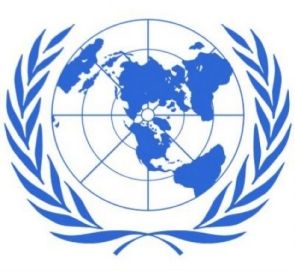 With the "path-breaking" decision by the United Nations General Assembly to advance efforts for the Security Council reforms, India's top diplomat at the UN on Tuesday said that countries should now negotiate on the text on the table and give their national positions on the issue.
With the "path-breaking" decision by the United Nations General Assembly to advance efforts for the Security Council reforms, India's top diplomat at the UN on Tuesday said that countries should now negotiate on the text on the table and give their national positions on the issue.
"We have got something after 23 years which is a document on the table. It is going to be much more in terms of what they are used to doing at the UN which is to negotiate with a text in front of us," India's Permanent Representative to the UN Asoke Mukerji said.
"The decision today puts the paper on the table and it is now for every country to negotiate on that paper giving their national positions," he told PTI at the United Nations.
The 193-member General Assembly adopted by consensus on Monday, on the last day of the 69th session, a text that sets the stage for negotiations on the long-pending issue of UNSC reform during the 70th session that commences on Tuesday.
Mukerji insisted that the decision to carry forward the intergovernmental negotiations on Council reform and the negotiating text is not a roll-over or technical decision.
"It is a substantive decision taken unanimously by the General Assembly fully within the meaning of any decision on UNSC issues. In this case we had a complete census. That is the important part that the entire membership has agreed and it is as much a reflection of commitment of member states as of the President of the General Assembly Sam Kutesa who achieved this outcome for us," Mukerji said.
He added that in cases of negotiations on Security Council reforms, there are procedures which the countries have already agreed to on how to take decisions on issues about which there are convergent or divergent views.
He also underscored that the UNGA decision has a "direct impact" on the 2030 Sustainable Development agenda that will be adopted by world leaders later this month.
"You cannot delink the world in which we live, which is being marked by so many crises, from the implementation of the agenda," he said.
India has been a leading voice in the UN to commencing the process of Security Council reform on the basis of a negotiating text.
In a statement after the adoption, Mukerji had said "this is the first time in the history of the Inter-Governmental Negotiation process that a decision on UNSC reform has been adopted through an official formal L Document of the UNGA.
"This is a most positive and unique development, as so far, over the last 7 years we have only been making statements in the air, or at each other, with easily deniable or disputable summaries, or at times compilation text(s), to register our endeavours."
Mukerji had also said the adoption of such a "substantive decision" on UNSC reforms "changes the dynamics of the Inter- governmental negotiations" completely and sets the process "formally on an irreversible text-based negotiations path."
While the negotiating text was adopted with consensus, Russia, China and Pakistan voiced their protests on the process in their explanations to the Assembly. The three countries, along with the US, had also refused to contribute to the negotiating text circulated by Kutesa.
The text circulated in July had contained positions of UN member states on UNSC reform and how the UN body should be expanded in its permanent and non-permanent categories.
China's delegate said that his country believed that the framework document "cut into pieces" the integrity of the membership and the spirit of earlier decisions.
Many Member States were against creating a framework document, he said, adding that it had caused serious contention during the current session of the Assembly.
He said China hoped that a new page would be turned during the next UNGA session and the mistakes that the mechanism had made during this session should be avoided.
Russia's envoy said his country had supported the draft because it was convinced that UNSC reform must absolutely be based on consensus. However, the negotiations had shown that "we are very far from developing a universal formula" for the expansion, he added.
The situation had not changed during the 69th session and the root of the problem was not in the negotiations methodologies, but in principled disagreements on key issues.
The Russian envoy said imposing a text that did not reflect the entire membership risked moving the process backwards and the negotiations should be carried out in an inclusive manner without artificial timelines.
Pakistan's UN envoy Maleeha Lodhi said the inter-governmental process in the 69th session of the General Assembly was a "step-backwards and not forward."
"What we witnessed this year in the IGN was a flawed process. The Chair's actions were arbitrary and not impartial. There was no attempt to reflect the legitimately held and well known positions of a large section of the Membership; no serious effort was made to reflect divergent views or to bridge differences. Discussions were confrontational rather than constructive. The document which has been produced is partial and incomplete. It cannot provide the basis for a negotiated solution," Lodhi said.
"Those who have long sought to use procedural maneuvers to advance their positions on Security Council reform should be aware that such efforts will not and cannot succeed. Mobilising support on procedures is very different from securing endorsement on substance," Lodhi added.
She said that Pakistan hopes the mistakes of this year will not be repeated in the next session.










